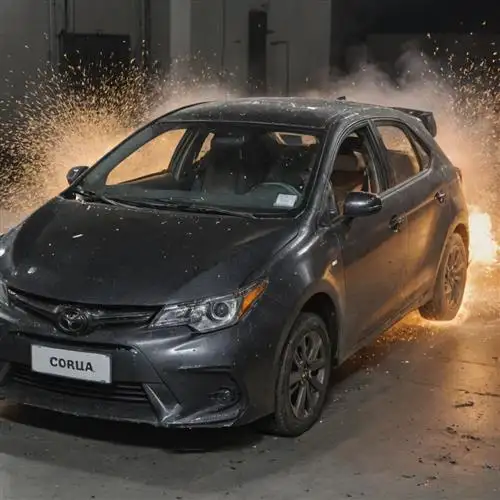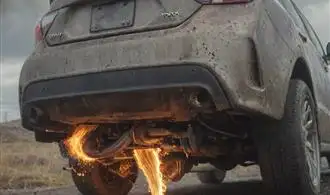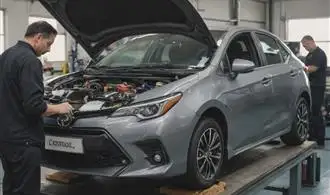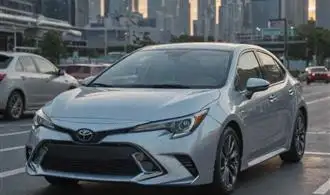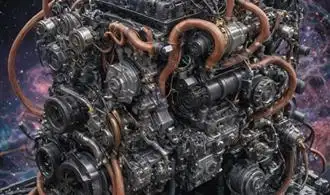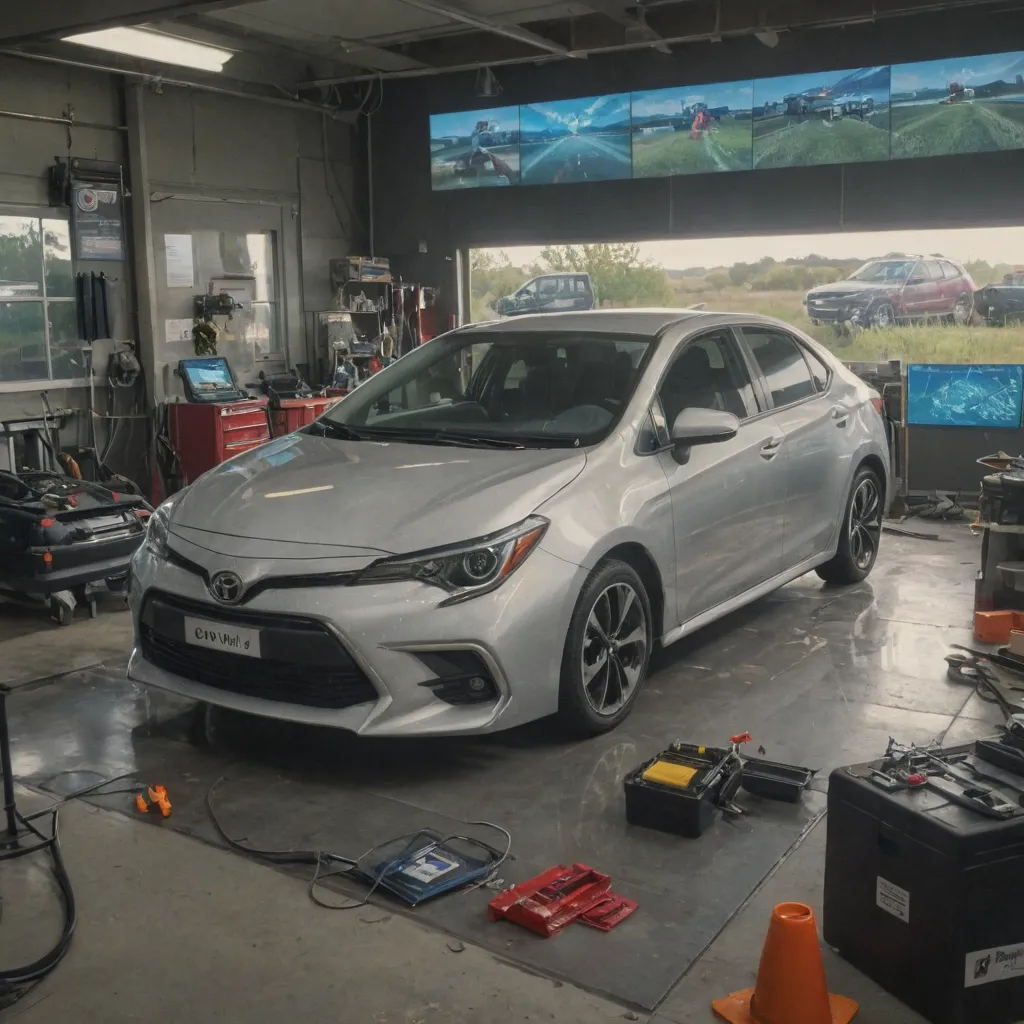
Advanced Safety Features of the Toyota Corolla
The Toyota Corolla has long been known for its exceptional safety features, making it a top choice for drivers who prioritize the well-being of themselves and their passengers. The advanced safety technology in the Corolla is designed to provide a comprehensive and reliable protection system, ensuring a secure and confident driving experience.
One of the standout safety features of the Toyota Corolla is its advanced collision avoidance system. This system utilizes a network of sensors and cameras to continuously monitor the vehicle's surroundings, detecting potential obstacles and hazards in real-time. When a collision risk is detected, the system can automatically apply the brakes or take evasive action to help prevent or mitigate the impact. This technology has been rigorously tested and proven to be highly effective in reducing the severity of accidents.
Another crucial safety feature of the Toyota Corolla is its comprehensive airbag system. The vehicle is equipped with multiple airbags, strategically placed throughout the cabin to protect the driver and passengers in the event of a collision. These airbags are designed to deploy with precision, cushioning the occupants and reducing the risk of severe injuries.
The Corolla also boasts an advanced traction control system, which helps maintain optimal grip and stability on various road surfaces. This system continuously monitors the vehicle's wheels, detecting any loss of traction and automatically adjusting the engine and braking power to ensure the car remains firmly planted on the road. This feature is particularly valuable in challenging driving conditions, such as wet or icy roads, providing the driver with enhanced control and confidence.
In addition to these core safety technologies, the Toyota Corolla also features a range of driver-assistive technologies that work in harmony to create a comprehensive safety net. These include features like lane departure warning, blind spot monitoring, and rear cross-traffic alert, which help the driver stay aware of their surroundings and avoid potential hazards.
Furthermore, the Corolla's safety systems are designed to work seamlessly with each other, creating a cohesive and responsive safety ecosystem. This integration ensures that the various safety features work together effectively, providing a comprehensive and reliable safety solution for the driver and passengers.
Crash Test Ratings and Performance
Crash Test Ratings and Performance of the Toyota Corolla: Unparalleled Safety for the Everyday Driver
The Toyota Corolla has long been celebrated for its exceptional safety features, and the latest models are no exception. When it comes to crash test ratings, the Corolla consistently earns top scores from organizations like the Insurance Institute for Highway Safety (IIHS) and the National Highway Traffic Safety Administration (NHTSA). This is a testament to Toyota's unwavering commitment to engineering vehicles that prioritize the well-being of both the driver and passengers.
The Corolla's safety performance is underpinned by a robust body structure that utilizes high-strength steel in key areas. This construction not only enhances the vehicle's resistance to deformation in the event of a collision but also helps to distribute the force of an impact evenly throughout the frame. The result is a car that is remarkably resilient and able to withstand the forces of a severe crash without compromising the integrity of the passenger compartment.
In IIHS testing, the Corolla has earned the prestigious "Top Safety Pick+" designation, the organization's highest rating. This recognition is awarded only to vehicles that demonstrate exceptional performance across a range of crash tests, including front, side, and rear impacts, as well as roof strength and head restraint evaluations. The Corolla's consistent ability to ace these rigorous assessments is a clear indication of its engineering excellence.
The NHTSA has also awarded the Corolla with a 5-star overall safety rating, the highest possible score. This comprehensive evaluation takes into account a vehicle's performance in frontal, side, and rollover crash tests, as well as its ability to prevent collisions through advanced safety technologies.
One of the standout safety features of the Corolla is its suite of advanced driver-assistance systems, known as Toyota Safety Sense. This suite includes technologies such as pre-collision system with pedestrian detection, lane departure alert with steering assist, automatic high beams, and dynamic radar cruise control. These systems work in tandem to actively monitor the vehicle's surroundings and intervene when necessary to help the driver avoid or mitigate the impact of a potential collision.
Driver Assistance Technologies in the Corolla
The Toyota Corolla is renowned for its unwavering commitment to driver safety. At the heart of this commitment lies the suite of driver assistance technologies that come standard across the Corolla lineup. These cutting-edge features work in harmony to provide an extra layer of protection, helping to mitigate the risk of accidents and ensuring a more secure driving experience.
One of the standout safety features in the Corolla is the Toyota Safety Sense system. This suite of advanced technologies includes a Pre-Collision System with Pedestrian Detection, which uses radar and camera sensors to detect potential frontal collisions and automatically apply the brakes if the driver fails to respond. The system can detect pedestrians, cyclists, and even certain objects, providing an added level of vigilance on the road.
Another key component of the Toyota Safety Sense system is Lane Tracing Assist. This feature uses the car's lane markings to help keep the Corolla centered within the lane, providing gentle steering inputs to counteract any unintentional drifting. This technology is particularly useful on highways and long stretches of road, reducing driver fatigue and enhancing overall control.
The Corolla also boasts Automatic High Beams, which automatically switch between high and low beams based on the presence of oncoming traffic or the brightness of the surroundings. This feature helps to improve visibility without blinding other drivers, contributing to a safer driving experience for all.
In addition to the Toyota Safety Sense technologies, the Corolla is equipped with a comprehensive suite of airbags, including driver and front passenger airbags, as well as side curtain airbags for all rows. These airbags work in tandem to provide a protective cocoon in the event of a collision, helping to minimize the risk of serious injury.
The Corolla's impressive safety credentials extend beyond its driver assistance features. The car's body structure is designed to absorb and distribute impact forces, helping to protect the occupants in the event of a collision. Furthermore, the Corolla's braking system, which includes features like Brake Assist and Electronic Brake-force Distribution, ensures reliable and responsive stopping power, enhancing the driver's ability to maintain control in emergency situations.
Passenger Protection and Occupant Safety
Passenger Protection and Occupant Safety is a critical aspect of the Toyota Corolla's design, ensuring the well-being of its occupants in the event of a collision. At the heart of the Corolla's safety features is its advanced body structure, which utilizes high-strength steel and carefully engineered crumple zones to absorb and dissipate impact forces. This innovative design not only protects the cabin but also helps to maintain the structural integrity of the vehicle, reducing the risk of intrusion and serious injury.
The Toyota Corolla's safety features go beyond its robust body construction. The vehicle is equipped with a comprehensive suite of airbags, including dual-stage front airbags, front seat-mounted side airbags, and side curtain airbags that cover the front and rear seating areas. These airbags work in tandem with the Corolla's seatbelt system, which features pretensioners and force limiters that help to restrain occupants and distribute the forces of a collision effectively.
Complementing the passive safety features, the Toyota Corolla also boasts a range of advanced active safety technologies. This includes the Toyota Safety Sense system, which combines features like The Toyota Corolla and the Subaru Impreza - Which One Should You Choose? Pre-Collision System, Lane Departure Alert, and Automatic High Beams. These systems work to actively monitor the driving environment, detect potential hazards, and intervene to help prevent or mitigate collisions.
The Corolla's commitment to occupant safety extends to its child safety features as well. The vehicle is equipped with LATCH (Lower Anchors and Tethers for Children) attachments, making it easy to securely install child seats. Furthermore, the Corolla's rear-seat design, which includes three-point seatbelts for all seating positions, ensures that younger passengers are well-protected in the event of an accident.
Maintenance and Longevity for a Safe Corolla
Maintaining the safety of your Toyota Corolla is crucial for ensuring a long-lasting and reliable driving experience. The Corolla's renowned longevity is a testament to its robust engineering, but proper maintenance is key to unlocking its full potential. Here are some insider secrets to keep your Corolla running safely for years to come.
Regular Servicing: Adhering to the manufacturer's recommended maintenance schedule is paramount. This includes oil changes, tire rotations, and inspections of vital components like the brakes, suspension, and electrical systems. Neglecting these routine tasks can compromise the Corolla's safety features and lead to more costly repairs down the line.
Brake Care: The Corolla's braking system is a crucial safety feature. Ensure that the brake pads and rotors are in good condition and replace them as needed. Consider upgrading to high-performance brake components for enhanced stopping power and reduced braking distances. Regular brake fluid flushes can also help maintain optimal brake performance.
Tire Maintenance: The Corolla's tires play a vital role in its handling, stability, and overall safety. Regularly check the tire pressure, tread depth, and overall condition. Rotate the tires as recommended to ensure even wear, and consider replacing them when the tread depth approaches the minimum safety threshold.
Electrical System Vigilance: The Corolla's advanced safety features, such as the airbags, anti-lock brakes, and electronic stability control, rely on a healthy electrical system. Have the battery, alternator, and other electrical components inspected and serviced as needed to ensure they are functioning correctly.
Suspension Upkeep: The Corolla's suspension system is responsible for providing a smooth and stable ride, which is crucial for maintaining control of the vehicle in various driving conditions. Have the shocks, struts, and other suspension components inspected and replaced if necessary to ensure optimal performance.
Engine Maintenance: While the Corolla's engine is known for its reliability, proper maintenance is still essential. Regular oil changes, air filter replacements, and attention to any engine-related issues can help maintain the Corolla's overall safety and longevity.




